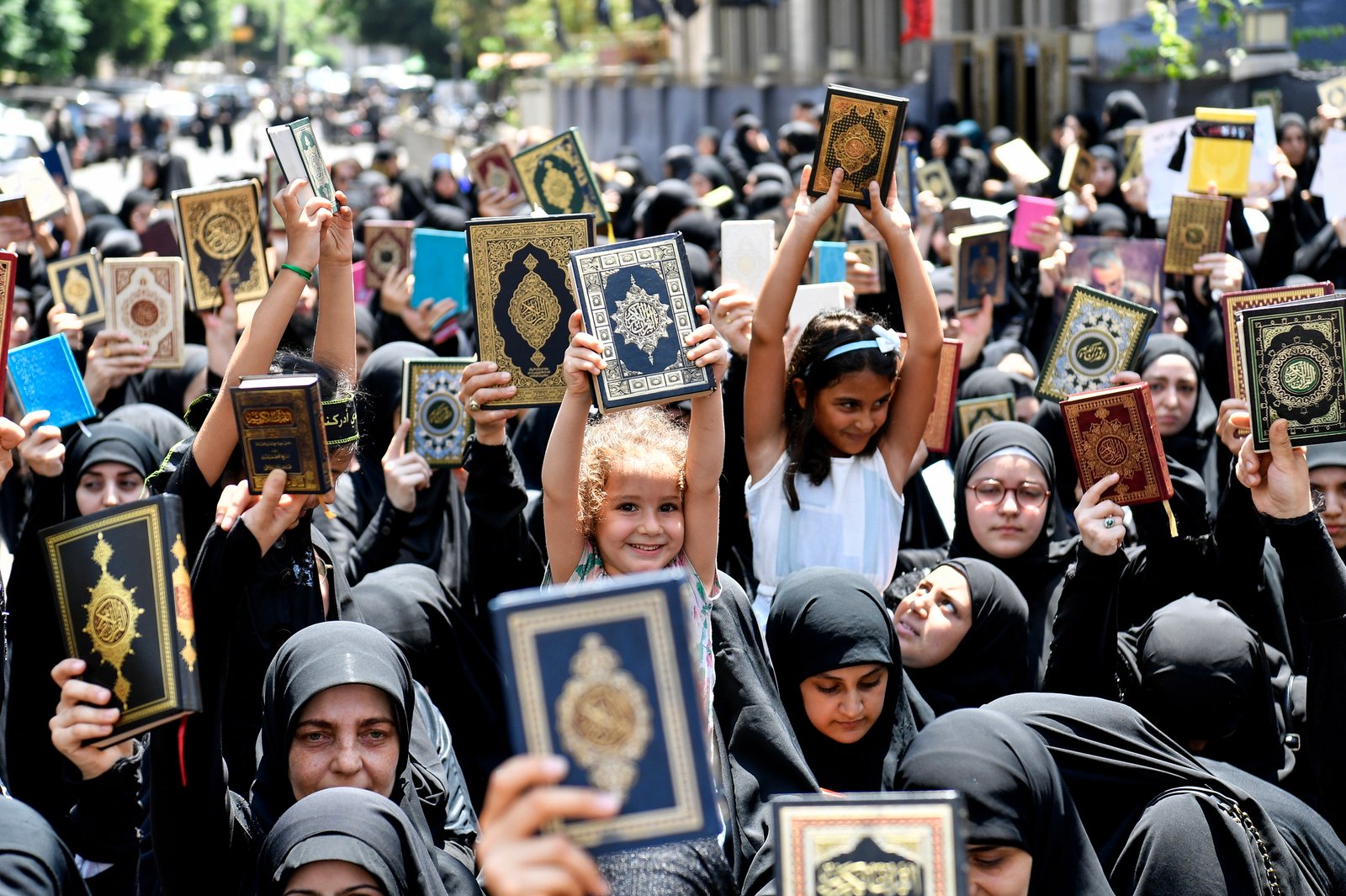In Indonesia, the Unique Diversity of Religious Worship, Awareness-Unity, and Self-Purification During the Month of Ramadan
Jakarta, Indonesia: Muslims in Indonesia are celebrating the start of the holy month of Ramadan by shopping for sweets, new clothes, and participating in traditional festivities, but religious places of worship are also witnessing large crowds of men and women. Notably, there is a significant presence of women in religious activities, including Quran recitations and various acts of worship.
In Indonesia, the Unique Diversity of Religious Worship, Awareness-Unity, and Self-Purification During the Month of Ramadan
In Indonesia, the Unique Diversity of Religious Worship, Awareness-Unity, and Self-Purification During the Month of Ramadan
Jakarta, Indonesia: Muslims in Indonesia are celebrating the start of the holy month of Ramadan by shopping for sweets, new clothes, and participating in traditional festivities, but religious places of worship are also witnessing large crowds of men and women. Notably, there is a significant presence of women in religious activities, including Quran recitations and various acts of worship.
In the world's most populous Muslim-majority country, Indonesia, Ramadan celebrations take place through a variety of colorful nighttime parades, cleaning family graves, preparing food for pre-dawn meals, and organizing elaborate post-sunset meals known as "Iftar."
Each region in this vast archipelago of 17,000 islands has its own unique way of celebrating the beginning of Ramadan, where Muslims refrain from eating, drinking, smoking, and engaging in sexual activities from dawn until sunset throughout the entire month. Even a small sip of water or a puff of smoke can invalidate the fast. In the evening, families and friends gather in a festive atmosphere to share meals.
Religious Affairs Minister Nasaruddin Umar announced on Friday that Ramadan would begin on Saturday, following the sighting of the crescent moon by Islamic astronomy observers in Indonesia's westernmost province, Aceh.
After the announcement, mosques were flooded with devotees offering evening prayers known as "Tarawih." In Jakarta's Istiqlal Grand Mosque (the largest in Southeast Asia), thousands of worshipers gathered shoulder-to-shoulder for prayers. The daylong fasting is meant to bring people closer to God and remind them of the suffering of the poor. Muslims are expected to strictly observe their five daily prayers and engage in increased religious contemplation. They are also urged to avoid gossip, fighting, or cursing during the holy month.
Samsul Anwar, his wife, and their 8-year-old nephew were among hundreds of people participating in a torchlight parade along the streets of their neighborhood in Tangerang, a city just outside Jakarta, after evening prayers on Wednesday. They carried torches and flares, playing Islamic songs to the rhythm of the Arabic handheld percussion instrument "Rebana" as they walked along the crowded streets of the densely populated neighborhood.
"Every year, we welcome Ramadan with a tradition passed down through generations," said Anwar.
The Chinese Indonesian community also participated in the parade by performing the vibrant "Barongsai" (lion dance), which is an important part of the Chinese New Year celebrations, to the sound of drums and trumpets.
"The Barongsai performance was also held to symbolize unity between the Chinese and Muslim religious communities, aiming to foster religious tolerance," Anwar added.
It is also an exciting time for businesses. Hotels, restaurants, and cafes are offering special Ramadan promotions, and shoppers are flocking to shopping centers to purchase new clothes and home decorations for the Eid al-Fitr holiday, which marks the end of Ramadan. Children often receive new clothes and gifts. However, some Muslims are concerned about their financial situation during this Ramadan, as prices have been rising.
"Everything related to cooking is getting more expensive day by day," said Asih Mulyawati, a mother of two who lives in Tangerang, on the outskirts of Jakarta. "I am worried this situation will affect Ramadan celebrations."
Despite rising food prices in the past month, popular markets such as Tanah Abang in Jakarta were teeming with shoppers buying clothes, shoes, cookies, and sweets ahead of the holiday.
Indonesia's Ministry of Trade has said that the prices of imported staple foods, including wheat, sugar, beef, and soybeans, have sharply increased this year due to rising global commodity prices and supply chain disruptions. However, many people say the rise in prices affects not only imported foods but also local commodities like rice, eggs, chili, palm oil, and onions. Many also blame the government for rising gas and electricity prices.
"The current gloomy economic situation and extreme weather in recent months also contribute to soaring prices and the weakening of people's purchasing power," said Heru Tatok, a trader in Jakarta's Pasar Senen market.










